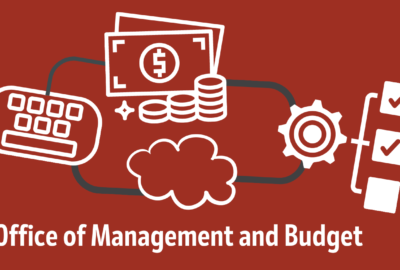What senior executives say about the incoming Trump administration
Career senior executives interact the most closely with political appointees. That could be challenging under the incoming Trump administration.
Career senior executives interact the most closely with political appointees. They’re often the buffer between appointees and the civil service. Marcus Hill, president of the Senior Executives Association, joined the Federal Drive with Tom Temin to discuss what senior executives might be thinking of the incoming and unorthodox Trump administration.
Interview transcript:
Tom Temin: All right. And so what are your members generally saying? I think there might be an assumption that they’re all, you know, getting ready to resist. But probably it’s a little more nuanced than that, I’m guessing.
Marcus Hill: Yeah, I think it’s a range of perspectives. We’re a nonpartisan organization that is comprised of bipartisan members. So you have a range of thoughts on the spectrum. But as it relates to the Senior Executives Association, first of all, we congratulate the Trump administration on the majority of voters spoke loudly and clearly as it relates to supporting this administration coming in. And so we’re looking forward to hopefully being able to work closely with the administration as it pursues its agenda. And so we’re focused on making sure that our members are informed, educated, and we’re supportive of their needs as we go through this transition.
Tom Temin: [00:01:26] And, of course, a lot of people are worried or watching or concerned about the institution of so-called Schedule F, which would put a lot of SEAs and a lot of people that aspire to be assets in that new classification. What will the SEA say or do with respect to that? I don’t want to prejudice the answer, by the way, I posed the question.
Marcus Hill: Well, we continue to believe that a Schedule F is not in the best interest of the American people. So we’ll continue to advocate against going to that particular schedule. However, what we do feel strongly about is the need to modernize the current merit-based system, which our organization and many others have valuable opinions and insights as to how to work collectively to do that. It’s overdue. I’m hopeful that the administration will pivot in terms of being able to focus on modernizing the merit-based system versus doing away with it totally.
Tom Temin: Yeah. How could you modernize it? What are some of the ideas there? Because I think a lot of people have that sense it could be modernized but don’t have the specifics.
Marcus Hill: Well, there are a couple of program areas that I think that are ripe to the focus on based on many surveys and feedback from the workforce. Performance management continues to be a challenge within the federal system. So I think that focusing on the laws, rules and regulations that make performance management a lot easier to will carry forth. There is a belief that the disciplinary system is extremely arduous and it is in terms of trying to hold employees accountable. But there are laws, rules and regulations in place that allow for those supervisors and managers that have a need to do that and do it effectively. So I think another area is the position classification arena. We’re dealing with a classification system I think that was established in 1949 or ’47. Well, that needs to be modernized. And so learning and development for career senior executives, I believe that there needs to be an investment in terms of making sure that our career senior executives are able to fulfill the roles that they’ve been appointed to perform.
Tom Temin: We’re speaking with Marcus Hill. He’s president of the Senior Executives Association and a retired senior federal executive. We should point out, you’re not an association guy. You’re a federal guy. And what’s your experience? What do you recall from the first Trump administration? Did that Office of Management and Budget kind of talk to you and listen to the ACA?
Marcus Hill: Well, at that time, I was a I was an executive at the federal Law Enforcement Training Center. So I had many layers of bureaucracy between me and the administration. However, I did have the good fortune of knowing some of the members of that administration literally at the cabinet and subcabinet level. So that was an exciting time. It really was at my law enforcement training agency because we knew people that were at the cabinet level. There are obviously going to be advocates for our program areas. And so I think there was an excitement in the air. And quite frankly, there were some great things that that that happened for the federal law enforcement training community during that administration.
Tom Temin: Yes. Do you find to and I imagine some of your members find that when the politicals arrive, they are to some degree maybe surprised, but all these people aren’t useless bureaucrats sitting around trying to thwart whatever is going on in the country. But there’s some bright, engaged, thoughtful, knowledgeable people there trying to do public good. That might come as a little bit of a surprise, I think, to new political appointees.
Marcus Hill: Absolutely. And I’m very hopeful that it will come as a surprise to the incoming administration because literally and I mentioned this a couple of weeks ago in a session I was in. Civil service, just like military members, swear an oath to support the Constitution. And so many civil servants joined the federal workforce because they want to serve. They’re not necessarily looking to become rich, so forth and so on, but they have a nature of service. So I think if politicals, when they come in, they can give the career folks an opportunity to provide the service that they’re good at in terms of ushering the institutional knowledge, providing advice and counsel as it relates to supporting the political carry out his or her agenda as it relates to administration. I would say the lion’s share of career senior executives understand and appreciate that as they have served in multiple administrations.
Tom Temin: And for those senior executives that are working, they will anticipate the arrival of new politicals. And a lot of the current politicals are already leaving or announce their intention to leave. That’s the natural course of things. What’s the best approach that first day when the political arrives and you’re the senior executive do you think?
Marcus Hill: For me, that the best approach has always been to listen and listen more and talk less? So that’s my position. Trying to seek to understand before giving my advice and counsel as it relates to helping them carry out their agenda. I would actually offer and embrace them and invite them in and ask them how they would like to interact with the with the career in terms of getting up to speed as it relates to critical programs, the status of various programs and agencies, so forth and so on, and just let that individual know that you’re there or the career person is there to support them. And so I just believe that’s a good way to start out. And hopefully over time and to your point, they will get a great appreciation for that cadre that’s there to support them as they carry out the president’s agenda.
Tom Temin: I know someone that I used to work for that had been appointed a manager. This is all in the private sector somewhere. And she told me the story of once walking into that new job as everybody’s supervisor. And the first person she encountered said to the others, ‘Look what the cat dragged in.’ Probably not a very good approach to the new boss.
Marcus Hill: No. Not at all.
Copyright © 2024 Federal News Network. All rights reserved. This website is not intended for users located within the European Economic Area.
Tom Temin is host of the Federal Drive and has been providing insight on federal technology and management issues for more than 30 years.
Follow @tteminWFED






